How Duke and NC Central University Are #InThisTogether to Support Durham Schools
February 17, 2021
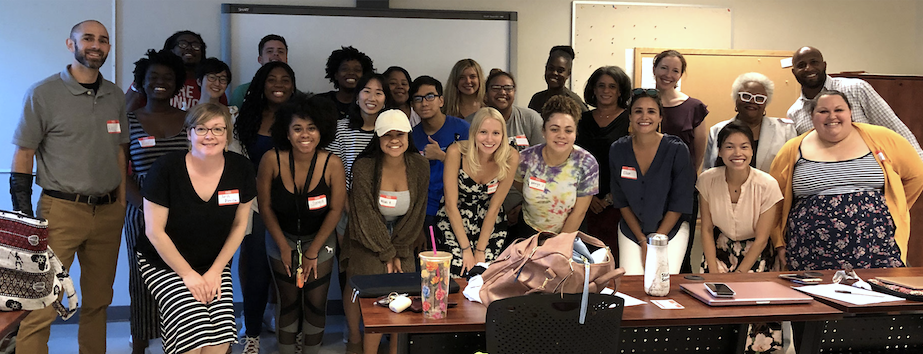
By Dana Adcock ’22
Like many staff members at Duke, Alec Greenwald cares deeply about education. Greenwald, who is currently a Director of Academic Engagement, was a teacher for many years in locations as far as Belize and as close as Hillside High School in Durham.
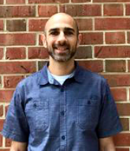
“When our local union campaigned to bring community schools to Durham, I became really interested in joining the two worlds – my current higher education position and my interest in public schools,” said Greenwald. That’s why he helped establish an education-focused Bass Connections team in collaboration with the Bull City Community Schools Partnership.
Amy Anderson, Assistant Professor of the Practice of Education at Duke, and Yolanda Dunston, Professor of Education at North Carolina Central University (NCCU), joined Greenwald to kick off this project in Fall 2019.
For the past two years, students from Duke and NCCU have been researching the history of community schools, how this type of school came to be in Durham and how the two universities can collaborate to meet the self-determined needs of Durham Public Schools.
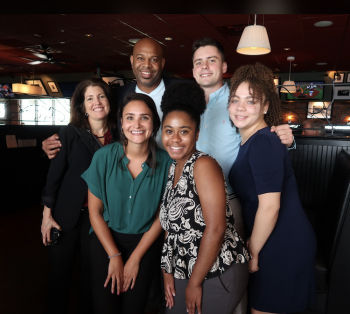
Duke undergraduate Songia Wynn joined the team to pursue her interest in education and public-school systems while maintaining her premed track. “I could actually merge my interest in medicine and education together through this [Bass Connections project], so I was really excited,” Wynn said. “This is perfect for me because I want to be a physician working with public schools and interacting with children, especially with children of color. This is a perfect opportunity.”
Team members built off the University-Assisted Community Schools model, developed at the University of Pennsylvania in the 1980s. The model mobilizes university resources to help public schools serve students, families and community members.
The 2019-2020 team conducted an assessment to identify what themes emerged from the most pressing needs of Durham Public Schools (DPS) partner institutions. This year’s team is reviewing the various types of community schools and University-Assisted Community Schools models that exist throughout the country.

Students are researching the history of universities’ engagement with their local communities and considering the advantages and disadvantages of each model. Team members will refine asset maps of resources that Duke and NCCU offer community schools in Durham to understand where duplication exists and identify where innovation can take place.
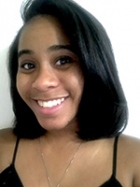
Before the pandemic, some students were able to take part in visits to universities that have already implemented the model. Wynn visited the University of Central Florida. “After learning about [the model], you think it sounds amazing, but seeing it in action makes you realize there are tangible results,” said Wynn. “There’s a social work office in the school. There’s a psychologist in the school. There are all of these resources for free available to the students, the parents and the community members, which is amazing.”

This particular team is unique because members collaborate across two local universities. “My favorite part of the project has been the inter-institutional aspect,” said Dunston. “It has been truly eye-opening to see the different ways that Duke and NCCU students, faculty and staff perceive and carry out our work with DPS-facing activities. Equally exciting for me are the ways in which we are imagining how we can combine forces, resources and materials to make a strong impact on the students of DPS.”
Wynn also appreciates the collaboration. “I take so much pride in my team, because I feel like we’re one of the first Bass Connections teams to interact with another school, but especially an HBCU [historically Black college or university]. I find it amazing that we have those perspectives from NCCU,” said Wynn. “The cross-collaboration between the universities is one of the best things about the program, because I get to interact with students from a different university and get different perspectives. I really appreciate just having different types of thought and collaboration.”
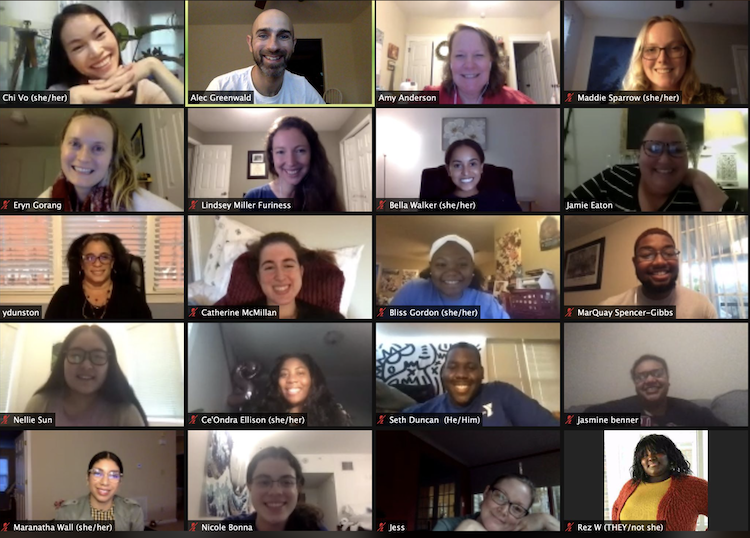
Before interacting with classrooms, students were prepped on topics like race and class. Team leaders wanted them to have the proper background before they set foot in school settings that may look different from their own. “We really wanted to figure out ways to partner more responsibly and imaginatively,” said Greenwald.

The project has not come without its challenges. While both schools bring strengths to the table, the team had to address inequities that were exacerbated by the pandemic.
“Our biggest strength is leveraging the resources and expertise of both institutions, and our biggest challenge is figuring out how to build an equitable research project,” Greenwald said.
“One of the challenges which we anticipated was the importance of creating an equitable experience for students from both institutions,” said Dunston. “However, we were able to be proactive in addressing this, making sure that grading and attendance policies were equitable, alternating meeting spaces between both campuses and a neutral Durham location, providing transportation for all students through Lyft and developing and agreeing upon community norms early to make sure everyone felt their voices were heard and valued.”

Even with the challenges they have faced, the team has fostered strong relationships between members. “The hashtag we use is #InThisTogether,” said Greenwald. “We pride ourselves [on being] a collective.” Their united approach is emphasized in a recent article by Duke and NCCU team leaders for the Netter Center at the University of Pennsylvania.
“The collaboration between NCCU and Duke has been rewarding,” Dunston noted. “Prior to this experience, I had not had many experiences with Duke students, faculty or staff. This particular project does something that seems to be so obviously important for our community – bringing the two Durham institutions together to present unified support for Durham’s PreK-12 schools. Watching the NCCU and Duke students collaborate on data collection and analysis has been incredible. Moreover, it was very clear that they learned a lot about each other’s lived experiences and developed lasting friendships and connections.”
Duke University junior Dana Adcock is a Bass Connections communications assistant who is majoring in Environmental Sciences & Policy.
Learn More
- Read more from team member Songia Wynn ’21.
- Register for the Bass Connections Works in Progress Symposium on March 2.
- Apply for a Bass Connections Student Research Award by March 5.
